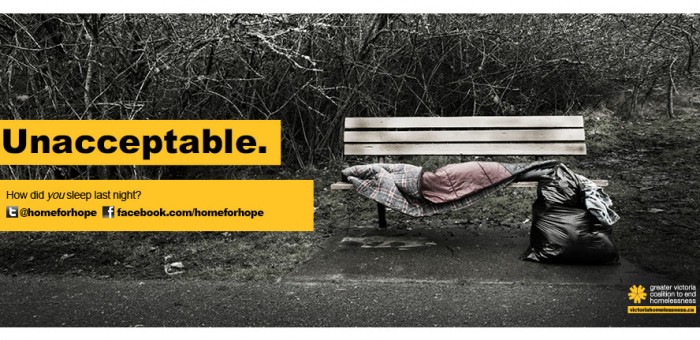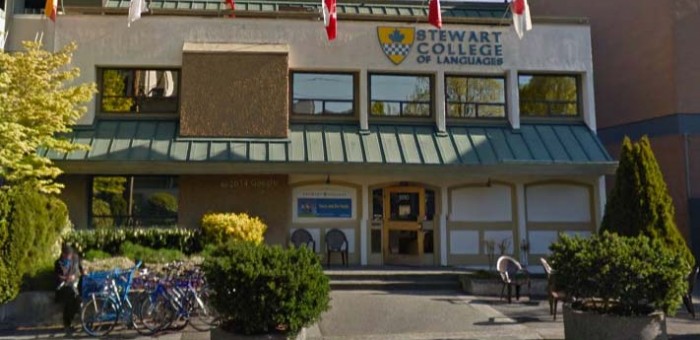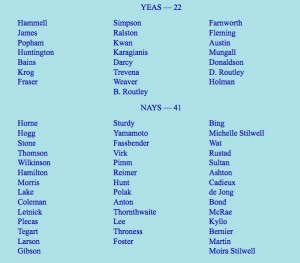Issues & Community Blog - Andrew Weaver: A Climate for Hope - Page 161
Disappointing Answers from Government on Income Assistance Rates
Today in Estimates I had the opportunity to ask the Minister of Social Development and Social Innovation two questions concerning poverty, homelessness and affordability. I ended up not asking the third question. Earlier in the day government announced changes to the support for single parents on income or disability assistance; yesterday government also announced changes to the support for families with children who receive income assistance.
My third question would have been:
“In the Premier’s mandate letter to the Ministry of Social Development and Social Innovation on June 10, 2014, the Ministry was mandated to work with the Ministry of Children and Family Development to provide options to Cabinet that will ensure barriers are removed for single mothers looking to develop their skills to secure long-term employment. Given that lone-mother families are at a much higher risk of living in poverty than lone-father families and couple families, this mandate is important for addressing BC’s growing child poverty rate. What has the Ministry done over the last year to ensure that this mandate is met and what steps does this budget take to improve upon the work that is already being done?”
Based on the disappointing answers I received on my first two questions, I expected that I would simply be told about the two recent announcements government made.
Below I reproduce the exchange between the Minister and me.
Question
On plans to increase income assistance rates
A. Weaver: I recognize that a version of this question may have been asked. I’ve just got three questions. I am trying to put together the answers so that I can use them in the further work that we’re doing in my riding on the issue of poverty.
The first question is with respect to income assistance rates in B.C. which, as the minister will know, have not increased since 2007, with maximum monthly shelter allowance for a single individual on income assistance set at $375.
As of April 2013 the average monthly rent paid by someone on income assistance in greater Victoria was $501. These monthly rent rates are consistent throughout the province, if not even more in some jurisdictions.
My question is this. Does the minister have plans to increase income assistance and shelter allowance rates in order to keep up with inflation and market pricing? If not, why not?
Answer
Hon. Michelle Stilwell: To the member: I expected you to provide questions to me ahead of time like you give everybody else, but thank you for your question.
We acknowledge that it is very challenging for people who are living on income assistance, and we have definitely made the commitment to raise the rates when the fiscal situation allows. But most importantly, we continue to refine the policies that we have within my ministry and within other ministries, as we saw today with the announcement we made for single parents. We’ve also made the announcement a few months ago about the annualized earnings exemptions for persons with a disability, the child support exemptions, the increase in exemptions that we saw yesterday. There are ways that we can refine the policies in the meantime while we continue to try and make life better for those individuals who rely on us most.
Question
On plans to increase support for brain injury survivors
A. Weaver: I do apologize for not providing questions in advance. I normally do that. I’m just not that organized now because there are so many bills that are coming before us so quickly. They’re coming up so fast that I’m unable to actually stay more than, like, half a day ahead of this.
Here’s my second surprise question. Studies have found that 52 percent of people on the streets have brain injuries. Approximately 74 percent of those individuals had their brain injury before becoming homeless. Given these findings and the fact that responsibility for social assistance programs falls under the mandate of the Ministry of Social Development and Social Innovation, has the ministry considered working with the Ministry of Health to address the need for improved supports and services for brain injury survivors?
Answer
Hon. Michelle Stilwell: Yes, we do actively work with and in partnership with the Ministry of Health but also with health authorities, other non-profits, B.C. Housing, multiple partnerships around. When it comes to the Ministry of Health, we use our ACT Teams with the outreach to ensure that the homeless, including those who are brain-injured, are actively brought into the income or disability system.
Most likely, a person with a brain injury would qualify for PWD, and we would have expedited services for access to the Medical Service Plan and the PharmaCare plan as well. I certainly recognize and acknowledge the concern that you’ve brought forward.
Bill 7-Private Training Act: Good intentions, Bad Delivery, Missing Information
Over the last two days, we have been debating Bill 7, Private Training Act, in the legislature. This bill replaces the Private Career Training Institutions Act, dissolves the Private Career Training Institutions Agency (PCTIA), and transfers its authorities and functions to the Ministry of Advanced Education. Closing the agency and transferring its functions to the Ministry of Advanced Education will save about $1.5 million over three years and moves British Columbia in line with how other provinces handle private career institutions.
Last April, the BC government dissolved the PCTIA, the organization that regulated private career colleges. This decision came after complaints about administrative fairness and enforcement of educational standards. A month after this decision was made, BC’s Office of the Ombudsperson also announced it would be launching a probe into the Agency.
On March 9, the Office of the Ombudsperson issued a Media Advisory indicating that its In the Public Interest: Protecting Students through Effective Oversight of Private Career Training Institutions would be made public following it being tabled in the legislature on Wednesday, March 11, at approximately 2:30 p.m. Today, we received an additional Media Advisory indicating that the report would not be tabled today and its public release would be postponed until further notice.
As you might imagine, this puts opposition MLAs in a very frustrating position as we were again discussing Bill 7 today in the absence of critical information that would inform us in our deliberations. As you will see from the discussion below, yesterday I rose on a point of order (but was overruled) asking that further deliberations of Bill 7 at Committee stage be delayed until such time as the Ombudsperson’s report was tabled.
In principle, Bill 7 is well intentioned. Unfortunately, it is incomplete and I spoke to the bill extensively yesterday in an attempt to offer means and ways of improving it. As evident in the relevant transcript of the proceedings (which I reproduce below), in my view there is a significant problem with the way Bill 7 regulates private language education schools. This legislation does not regulate the entire private language education sector. It only regulates those who voluntarily agree to actually seek registration. Those who choose not to register are not regulated. Paradoxically, in an attempt to protect students, those schools that voluntarily register and in so doing choose to meet higher standards are penalized with additional costs and administration. Those schools that choose not to register are not regulated and there is no additional protection for students, which is what this bill was supposed to do.
During the committee stage I offered an amendment to exclude private language education institutions from Bill 7 with the understanding that they would be regulated through the introduction of a future bill. The amendment was defeated.
Hansard Transcript of Deliberations
A. Weaver: I, too, share the concerns of the previous member speaking to this with respect to private language education. In reading through the definitions, I have some trouble with the definitions of “career training institution” and “career training program.”
My question to the minister is: does the minister see career training to mean and include private international language education schools, which are not actually providing career training but, rather, language education for foreigners? I’ll follow up with a quick question after that.
Hon. A. Wilkinson: On reviewing those definitions of “career training institution” and “career training program,” those definitions are directed at the “program of instruction” definition above — “(a) enhancing the student’s employability in a career occupation, or (b) improving the student’s ability to carry out a career occupation.”
That is not specifically addressing the language skill issue, which is captured in section 5 of the act. It provides that “an institution that is not required to hold a certificate may apply in accordance with this Division for a registration certificate or” — what they seek for federal approval for student visas — “a designation certificate.” They cannot get the federal visa status without the designation certificate.
A. Weaver: To give a personal story that might help where I’m coming from with respect to my concern over what, I would argue, is the absence of reflection upon some of the value-added that private language schools are bringing to our province, is that one of my constituents is the owner of Stewart College here in Victoria. It’s a fully accredited — voluntarily so — private language school here that has 175 host families in the greater Victoria region.
The opportunities that this school brings for international students is profound. There are 175 host families, who generate income from the students staying with them. The tourism sector in Victoria benefits from these students coming to our region. These students spend money. A third of their money is on tuition; two-thirds of their money is on other things.
The international language education is more than just tuition, which is my concern with respect to this bill as we move forward with these definitions and how they play out for private language education. This school provides a substantial economic boost to the greater Victoria area, and it is but one. There are many, many other such schools in the province of British Columbia.
My concern is that while it’s laudable and I applaud the efforts to actually protect students from perhaps fly-by-night organizations, my real worry is that the baby is going to be thrown out with the bathwater in doing this.
So my question to the minister is this. Is it possible, in light of the fact that we’ll almost certainly be discussing this bill for the rest of the day and perhaps much of tomorrow, to reflect upon the definitions, to recognize that perhaps something specific should be added into the definitions to deal with private language schools or exempt private language schools from the present bill so that more time could be put in to reflect how these non-career-training institutions will be better regulated under legislation that actually reflects the value-added that they provide to our economy?
Hon. A. Wilkinson: The member, of course, alludes to this balance I referred to earlier between those that seek to improve their quality of profile, enhance their credibility, improve their marketability and appeal to the international student market and thereby be looking for a federal student visa designation, which requires them to be compliant with the act and to be designated institutions. That introduces a certain compliance obligation, which will be limited over time, for those who are compliant and have a good track record.
Of course, at the other end of the spectrum, we look to have a light regulatory and compliance burden placed on those small institutions that perhaps are doing some less sophisticated training in a smaller venue.
The organization that the member refers to, having 175 homestay families in British Columbia, one would suspect that they are in the former category of the high-quality institution with the big reputation and a history of performance. That, of course, applies not only to the training in language but also to the selection and management of those homestay relationships.
I think the overview is that the organization the member refers to has very little to be concerned about with this legislation, because if they are big enough to be designated now, they will carry on in a very similar fashion under the legislation as they did formerly.
A. Weaver: I’d like to build on an answer that the minister gave me with respect to my question regarding the definitions of “career training” and “career training program” and his referring of me to section 5, which we will discuss later, of course. The question I have is…. My understanding, first off, is that the British Columbia government has entered into and signed a memorandum of understanding with Citizenship and Immigration Canada with respect to visa requirements and tracking those who are given a visa to come to an eligible institution. First off, may I ask if that is a correct understanding?
Hon. A. Wilkinson: There is an agreement between the provinces writ large and Citizenship and Immigration Canada as to the standard that will be applied at the provincial level to those language schools that seek to have eligibility for student visas.
A. Weaver: Coming back to the point raised by the member for Burnaby–Deer Lake, visa requirements are different depending on which country you come from. You may come from Taiwan, for example, and not need a visa to go and study in a school. You may come from another country and require a visa. You may be on a visitor’s permit and, as such, be allowed to study up to six months.
Coming back to the reason why I’m seeking clarification with respect to the definition of “career training program,” these private language schools provide critical training — not so much career training but language training — for international students wanting to better their skills in English. The concern here is that, if as the minister pointed out, by not having a specific definition for “private language education” someone is directed to section 5….
It says an “institution that is not required to hold a certificate may apply in accordance with this Division for a registration certificate.” This is making the whole private language sector in some sense voluntary. Now, a student could get a visa to come and train at a voluntarily registered private language institute. They could be with that institute for, say, two weeks and then move to a non-registered private language school.
Now, the reality here is that this does nothing to protect the students from fly-by-night organizations. All it’s doing is protecting the students at entry point to a registered school, but they can immediately move to another school. I would argue that, in so doing, the MOU that the British Columbia government has signed — or has along with other provinces, signed with Citizen and Immigration Canada — cannot actually be enforced because the government will have no control as to where a student actually ends up having their private language education, because it’s only at the entry point that the visa requirement is there.
What this does, without specifically defining private language schools in the definitions and treating them separately, is it gives a loophole and actually penalizes those who actually want to voluntarily register, those who in doing so must then put aside moneys to protect students — which I agree with in general. It’s a good idea to protect students. But the students will come in….
Those institutions that have spent the money to register voluntarily, put money aside — as per this legislation — can be the entry point for a student, but they don’t have to be the final point for a student. They could be a transition point for a student. This is why it’s so critical, I would argue, to put in the definitions and treat separately private language schools — not through voluntary regulation under section 5.
My question, then, back to the minister again and another time is: is it possible for the minister to reconsider, over the course of the night, the potential for adding an exclusion or adding in a different definition for private language schools that does not treat them as a throwaway into section 5, along with schools like massage therapy and other things as well?
Hon. A. Wilkinson: To address the member’s concern, as I understand it, the federal student visas are school-specific. So if the student arrives at school X and decides after two weeks they would rather go skiing or perhaps go to a cheaper school or something of the sort, their visa becomes void. That is the mechanism by which this regime is managed in concert with the federal government.
A. Weaver: Will that remain the same if this bill were to pass or not? Is that something that’s occurring now or has been in the past. Will it continue to be so in the future?
Hon. A. Wilkinson: Well, working with the federal government, we anticipate continuity, but we cannot tell them what to do with their legislative regime or their visa regime. But the status quo is expected to continue into the future in terms of that federal-provincial agreement, because as I say, it’s not just with British Columbia.
If I can answer the quantitative question from the member for Burnaby–Deer Lake that she raised earlier, Mr. Chair, there are 124 language schools on the federal immigrant student program…. Sorry, there are 124 language schools on the provincial list that are eligible for federal student visas.
I’m being corrected repeatedly here, because the note is not very clear. There are 124 schools on the ISP list with the federal government giving them visa eligibility, and 59 of them are language schools.
A. Weaver: Coming back to my…. I know I’m belabouring this point, but as you can see from the numerous members here, there’s some profound concern about the application of this legislation to private language schools in particular, in light of the fact that they’re not mentioned specifically in the bill — in the definition in particular, what we’re discussing right now.
My understanding is that in fact Citizenship and Immigration Canada does not yet track students upon entry into Canada. They are planning to do so, my understanding is, this year. However, my understanding is that they will be relying on the designate school, upon receipt, to actually provide information to CIC with respect to the date of entry and date of leaving.
Now, my understanding there is that, again, there is nothing to stop a person coming to Canada to a designated school and two days later moving to another school. That person is lost in the system. That person can attend another school with a valid visa that could be shown. It seems to me that unless we treat all such private language schools as requiring registration, then they’ll be lost.
This actually might encourage those to actually come with a visa for an accredited registered language institution and then move to some quick, fly-by-night organization. They head back to their country after they get their training, but there’s no record of them.
This bill does not protect the student. It actually penalizes the private language institution that must put aside money, etc., and spend the cost of registering. But that fly-by-night organization, which is not required to register, is not really tracked, and hence, the student is not tracked in the system.
Back to the minister again. Will the minister consider protecting our vibrant, solid, well-established private language school industry in British Columbia, catering to a very large market in the Asia-Pacific, by ensuring that all private language schools are required to register, or failing that, putting in a specific definition here to exclude private language schools from this act until such time as consultation on that particular sector can occur in greater detail?
Hon. A. Wilkinson: There seem to be a number of issues there, which I’ll try to unravel. First of all, the majority if not all of these designated language schools that provide the eligibility for a student visa require payment in advance. So presumably, the student then arrives in Canada. They may not arrive directly in British Columbia. They may take a few weeks to get here. They then show up for their course, and they have paid in advance. They will then engage in their course.
If they decide to quit the course, that is a federal issue, that they have then violated the terms of their visa. We do not engage in immigration enforcement issues in this government. That is exclusively federal jurisdiction.
If that student, as the model suggests, were to quit the school that they had paid tuition to after a few days — which is hard to comprehend why they would do that — and go to another school, they would lose the tuition they had paid to school A, pay tuition again at school B and face deportation for violating the terms of their visa. That paradigm seems to be flawed.
I think the member’s question is more specifically directed at the definition section of the act. Our goal with this act is to capture those institutions that do lead to eligibility for federal student visas so that the federal regime will be invoked, and we will protect the reputation of our schools and our programs by not allowing them access to federal student visas unless they are designated and have met the designation criteria here in British Columbia.
A. Weaver: Not to be argumentative, but as I pointed out earlier, in fact, you don’t have to have a student visa from many countries to actually study in this country, Taiwan being an example. You can come here from Taiwan and study. You only need a student visa, in my understanding, in most cases if it’s for longer than six months.
This does not protect those institutions that have spent a lot of time building their credibility, their reputation, putting British Columbia on the map as a go-to place for private language instruction from the fly-by-night organizations that don’t have to register. Those accredited schools, those registered schools, have extra burden put on them, and those not-registered schools get to benefit from the reputation put on them.
Again, to the minister, will he consider putting in a definition to specifically define private language schools in British Columbia?
Hon. A. Wilkinson: We seem to be dealing with apples and oranges here, mixed metaphors. If a student comes from the European Union, anywhere in the European Union, to a language school in British Columbia, they don’t need a visa. They have a lengthy stay period. They can go skiing. They can pick apples in the Okanagan. They can go to language school for a while. They will pay their tuition to the language school up front.
It begs the question: why would they go to language school A, change their mind after three or four days, as the member suggests, go to language school B and pay twice for the same product when they can come and go from Canada as they please?
A. Weaver: In fact, I was pointing in this case…. The last question was with respect to people who didn’t need a visa. They could come from Taiwan, say, and go to school B that is nonregistered. They’re not protected. They don’t require a visa because they’re not here for an extended period of time. They can just enter the language school.
My question to the minister. Why would the minister not want to regulate all private language schools instead of only those certain components of them that voluntarily choose to register? This is not protecting students, international foreign language students, because students from some countries can come to B.C. and register into a language school without a visa. It can happen today.
Some of the schools that they’re going to are going to be protected. They’ll be protected because they’re registered. Others won’t be. Those that are not registered, by and large, probably don’t have the same reputation — not in its entirety — as those who have spent the time and money to build that reputation. They’re benefiting from the established reputation of our vibrant private language education sector in B.C.
My question to the minister. Why does the minister not want to protect all international students and only just those coming specifically on a student visa — as opposed to visitors, or from those countries that don’t require a student visa to actually attend private language schools here in British Columbia?
Hon. A. Wilkinson: The working premise here is finding the balance between a light regulatory burden on schools that do not require government intervention — the living-room classes in Spanish or in English, for that matter, that are conducted informally, that require no regulation that we’re aware of — and the other alternative on the other end of the spectrum: schools that seek the endorsement of the state, schools that seek to have on their website and in their materials the demonstration that they have met federal student visa qualifications and thereby, as a prerequisite, have met the standards to be designated provincially. Those are major selling points for any school.
In order to have those criteria applied to them and be eligible under those terms, the schools need to meet some regulatory standards because they’re asking for the endorsement of the state, both federal and provincial. That is what this regime does.
A. Weaver: I rise on a point of order.
In light of the issue that was brought to us momentarily ago by the member for Burnaby–Deer Lake, that the Ombudsperson’s report is being released tomorrow, it behooves this chamber and MLAs within to hear the results of this report — this report that’s been in the works for quite some time — prior to debating this bill.
We checked with the Clerk’s office earlier today to see whether or not such a point of order would be in order — to actually raise it. Obviously, I can’t determine what the result is. But we have not as a House, as a chamber, got the information before us that we as a chamber need in order to debate and discuss the merits of this bill further. That will be available to us in this chamber tomorrow, after the Ombudsperson’s report is released.
There is no reason for us to be debating this in committee today. The reason this is happening today, I don’t know. But we have several weeks to go in this sitting of the Legislature. We can debate this and examine this more closely in committee stage once we have the information provided to us by the Ombudsman’s report.
With that, I leave it to your fine judgment, hon. Chair.
The Chair: Member, the point of order is not acceptable. It doesn’t qualify under the usage of the standing orders.
A. Weaver: Coming back to the definition of “excluded institution.” This was canvassed very thoroughly by the member for Burnaby–Deer Lake. I do have an amendment I wish to add here, hon. Chair, in light of the fact that, as we’ve had a great amount of discussion concerning private language education institutions and the fact that both the organizations representing them, as well as the members on this side of the House, have grave concerns about this particular bill and its potential handling of these private language education institutions.
The amendment that I bring forward is under “excluded institution.”
[By adding the text shown as underlined:
Section 1 – Definitions
“excluded institution” means any of the following
(n) a private language education institution]
On the amendment.
The Chair: Proceed, Member. Do you have anything further?
Minister.
Hon. A. Wilkinson: We do not support this amendment. So perhaps there should be debate on the amendment. We’d be interested in hearing what the member opposite has to say, and I suppose it’ll proceed to a vote.
A. Weaver: It’s unusual not to debate a motion more thoroughly. I, of course, brought this amendment forward in light of the fact that there have been a number of questions with respect to private language education institutions not being listed in the definitions and so falling under section 5 of the act. Then the questions arose as to the fact that only some language education institutions would have to register. Others would not have to. The visa issue is complex, because some students require student visas and some don’t, depending how long you’re here, what country you’re from.
The fact here is that this legislation does not regulate the entire private language education sector. It only regulates those who voluntarily agree to actually seek registration. So it’s punitive, one might argue, to those who actually want to live by the so-called law of the land and meet higher standards — punitive in that it requires them to create funds through tuition funds, etc., to protect students. We’re all for protecting students, but others can get away with it.
I think that if we’re going to move forward, at a minimum, while there are other issues with the bill, we need to actually pull apart private language institutions from this bill and take more time to more thoughtfully come up with means and ways of providing legislation that actually will deal with the regulation of the private language sector.
The Chair: Seeing no further speakers, the question is the amendment proposed by the member for Oak Bay–Gordon Head.
Amendment negatived on division.
Bill 6 is Good for BC: Regulation of the Debt Settlement Industry
In January I sent a letter to Minister Anton seeking clarification as to whether or not legislation was going to be introduced to regulate the debt settlement industry. Similar legislation exists in other provinces (e.g. Ontario and Nova Scotia as well as in a number of US States). I received her response in February.
In her response, Minister Anton stated:
“Although I am unable to provide specific details regarding the development or timing of legislation at this time, I can assure you that government is committed to enhancing consumer protections against deceptive practices. To this end, ministry staff continue to work through policy issues that are necessary to regulate debt settlement agencies“
With the introduction of Bill 6, Justice Statutes Amendment Act 2015, the debt settlement industry in BC will now be regulated. This is good news for British Columbians struggling to get themselves out of debt. Today, I spoke strongly in favour or this bill at second reading. Below is the text of my speech.
Text of my Speech
A. Weaver: I rise to congratulate the government on introducing at least the aspect of this bill that concerned me. That’s with respect to the debt settlement. As the minister will recognize, I contacted her about this earlier this year.
As we know, debt settlement companies typically offer to negotiate on behalf of a consumer lump sum settlements with creditors for amounts significantly less than the consumer’s outstanding debt. Consumers are often required to pay excessive, largely non-refundable fees up front and are encouraged to stop paying their debts and instead save up for a lump sum settlement. This differs from traditional debt-pooling services, which set up reduced-interest repayment plans and assist consumers with eventually paying off their full debts.
Many people are unable to save enough for the lump sum settlement amount and subsequently drop out of the program, losing any money they have already paid to the debt settlement company. There’s no guarantee a creditor will accept the lump sum settlement, although this risk is often not communicated to consumers. This can negatively affect credit scores and further accumulate debt as late fees, missed payments and penalties build up.
The proposed changes, developed with the advice from a debt collection industry advisory group and in consultation with Consumer Protection B.C. would help prevent the negative practices and also modernize outdated provisions to ensure B.C.’s debt collection laws both reflect the present day collection and credit industry and align with other Canadian jurisdictions.
On January 5 of this year, after a rather large number of e-mails I received from people in the greater Victoria district, I contacted the minister and pointed out that in July of 2012 CTV News reported that the Minister of Justice at the time said: “In order to better protect consumers and families living in poverty, the B.C. government will provide legislative changes to regulate businesses that provide debt consolidation services and regulate advance fees paid.”
As I pointed out in the letter, since that time there had been little information from government about when we could expect to see such legislation. I pointed out in that letter on January 5 that debt management companies prey upon some of the most vulnerable British Columbians. Rather than providing a solution to an individual’s debt issue, these companies seek to profit off the situation.
A number of provinces, as I pointed out and as was mentioned by other members here — including Ontario, Alberta, Nova Scotia, Quebec and Prince Edward Island, which I hadn’t realized until a member brought it up recently — have passed similar legislation to end these predative practices within their jurisdictions. At the time I pointed out that I believed it was past time for British Columbia to pass our own regulations in this regard. I asked the minister if she could reply to me with an update as to where we were heading in this direction.
I was delighted to receive a letter from the minister on February 12, which I communicated back to my constituents and others, pointing out that debt collection in British Columbia is regulated under the Business Practices and Consumer Protection Act, pointing out that the legislation was designed to protect consumers by prohibiting deceptive practices and requiring debt industry professionals to be licensed.
At that time, the minister pointed out:
“The emergence of new types of debt repayment professionals has resulted in a need to ensure that they are also bound by the act’s rules. Although I” — being the minister — “am able to provide specific details regarding the development or timing of legislation at this time, I can assure you” — that is, me — “that government is committed to enhancing consumer protections against deceptive practices. To this end, ministry staff continue to work through the policy issues that are necessary to regulate debt settlement industries.”
It is with great pleasure that I stand to see that, in fact, this has entered into Bill 6, the Justice Statutes Amendment Act. I look forward to exploring some of the details further as we get into committee stage. In particular, I have some questions, obviously — and I’m sure other members will too — with respect to 127(3), which talks about a debt repayment: “A debt repayment…must not charge fees or disbursements in excess of the prescribed amount.” We’ll be questioning, obviously, what that prescribed amount may or may not be and what the minister has in mind in terms of subsequent regulations.
I’m also pleased to see that the bill actually does include this entirely new category called the debt repayment agent. It’s very reassuring to see regulations and guidelines put in place as to what a debt repayment agent may or may not do. So with that, I’m very pleased to stand in support of Bill 6, at least the two components that I’ve spent some time working on — the Business Practices and Consumer Protection Act subcomponent as well as Collection Agents and Debt Repayment Agents.
With that, hon. Speaker, I’ll thank you and look forward to committee stage of this bill.
Aerial Culling of Wolves to Save Endangered Caribou – The Rationale
In mid January, after receiving numerous emails from British Columbians across the province, I wrote to the Minister of Forests, Lands and Natural Resource Operations to ask a number of questions concerning the rationale for the wolf cull in the South Selkirk Mountains and the South Peace of British Columbia. I have now received a very detailed, comprehensive and thoughtful response to the questions that I posed. I encourage you to read the Minister’s response.
As noted in the response, the situation in the South Selkirk has changed since Steve Wilson wrote his 2010 report entitled “Estimating the Short-term Benefit of Wolf Management to Mountain Caribou Herds”. The Selkirk caribou population dropped from 46 to 18 caribou from 2009 to 2014 after increasing from 2004 to 2009. Few wolves were in the area during the earlier period while increasing numbers have been present in recent years and “the most recent confirmed mortalities on the South Selkirk herd are due to wolf predation”.
The Minister’s letter also outlines steps that have been or are being taken to preserve the caribou’s natural habitat. In addition, it outlines several predator management projects that are being developed on a trial basis.
The Minister also provided me with both a report plan and a peer review of the report plan. A key finding of the report was:
“The South Selkirk caribou population is declining by 30% to 40% per year (as demonstrated by the population numbers listed in the operational plan. Based on this rate of decline, the caribou population will likely be in a state of quasi-extirpation within a year.”
It’s clear from the evidence that the South Selkirk caribou population is near extinction and that predation by wolves is a leading cause of most recent mortalities. As a society, I believe we have a responsibility to protect endangered species. It is clear that a choice needs to be made. Not dealing with the growing wolf population would mean almost certain extinction of the caribou herd. Dealing with the growing wolf population gives this herd a fighting chance.
Not withstanding this short-term emergency measure that needs to take place, and the government’s recent efforts to create and preserve increased habitat for the caribou, I will continue to monitor government’s 2008 “Interim Strategy for Predator/Prey Management Actions in Support of Mountain Caribou Recovery”, where it notes that “habitat loss and fragmentation is largely the ultimate cause of mountain caribou declines”.
Trying to Protect the BC coast from expansion of thermal coal & diluted bitumen exports
During the committee stage of Bill 12, The Federal Port Development Act on Thursday afternoon, I put forth a number of amendments in an attempt to protect the British Columbia coast from the expansion of thermal coal and heavy oil (diluted bitumen) exports. These were the amendments mentioned in my earlier post on Bill 12. All amendments were defeated. Below I provide a brief excerpt from Hansard.
First Amendment
A. Weaver: With respect to the minister, the reason I have troubles with this legislation is…. We are not debating the Canada Marine Act. I will come to that.
Under the Canada Marine Act, the federal government can sell federal land in a port to a port authority, which could be administered by the province of British Columbia. In selling the land to the port authority, the Species at Risk Act and the Canadian Environmental Assessment Act no longer have any jurisdiction because the land is no longer owned by the federal government. It is now within the port authority, administered by the province of British Columbia.
My concern, therefore, with respect to an undertaking is that heavy oil or thermal coal experts would then no longer have to worry about Species at Risk or Canadian Environmental Assessment Act implications in any development there. The problem with that is that we don’t have anything in the province of British Columbia as a Species at Risk Act.
In essence, what’s happening in accepting an agreement like this, through an undertaking involving either coal or heavy oil, as we will discuss in section 3, is we are essentially saying that we in British Columbia can exempt such development from the federal Species at Risk Act and we have nothing to fall upon here in British Columbia. We can fall on the Environmental Assessment Act.
Frankly, with respect to what we’ve seen with Kinder Morgan and Enbridge, the province has done an admirable job in terms of representing the interests of British Columbia. I have not seen that with respect to thermal coal, and for this reason I do have two amendments I would like to bring here to specifically exclude from ‘undertaking’.
[To amend as follows:
By adding the text shown as underlined:
Section 1
“undertaking” means an undertaking, or an undertaking in a class, designated for the purposes of section 64.1(2)(a) of the Canada Marine Act; excluding an undertaking, or an undertaking in a class, relating to the import or export of thermal coal.]
That is the first amendment I so move.
The Chair: The amendment was proposed by the member for Oak Bay–Gordon Head. It reads: “‘undertaking’ means an undertaking, or an undertaking in a class, designated for the purposes of section 64.1 (2)(a) of the Canada Marine Act, excluding an undertaking, or an undertaking in a class, relating to the import or export of thermal coal.”
Amendment negatived on the following division:
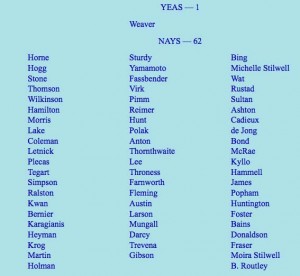
The Chair: Hon. Members, stay in your seats. The member is going to move another amendment.
Second Amendment
A. Weaver: As I mentioned earlier, I have a legal backgrounder from West Coast Environmental Law, which talks about the passage of Canada Marine Act, which we’re talking with respect to the “undertaking” definition here.
That would significantly increase the powers of port authorities, allow the federal government to off-load its responsibility over shipping in federal ports, etc. The changes now allow port authorities to buy federal land and infrastructure from the government and then lease those lands to companies or authorize companies to use them for as long as the port authority has control over them.
Once sold, those lands would no longer be federal property, meaning they would not be subject to terrestrial species protection under the Species at Risk Act.
Seeing as we have no species at risk act here in British Columbia, this raises some concern, which is why I move, again, an amendment to amend as follows:
[By adding the text shown as underlined:
Section 1
“undertaking” means an undertaking, or an undertaking in a class, designated for the purposes of section 64.1 (2)(a) of the Canada Marine Act excluding an undertaking or an undertaking in a class relating to the import or export of heavy oil.]
In light of the fact that we do not import heavy oil that probably is moot, but certainly export is a big issue that’s facing us now.
The Chair: Hon. Members, if the House waives the time we will proceed right away. Do we have consent?
Leave granted.
Amendment negatived on the following division: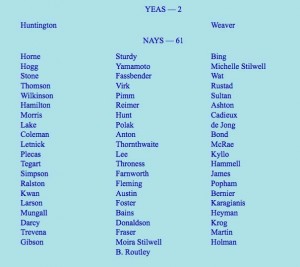
Third Amendment
A. Weaver: Thank you to the minister for the answer. My concern here is that the province would enter an agreement and potentially get into a position where the Species at Risk Act is not applicable or in force. I have an amendment here I’d like to move, which is to amend section 2 as follows:
[By adding the text shown as underlined:
Section 2
With the prior approval of the Lieutenant Governor in Council, a member of the Executive Council may enter into an agreement on behalf of the government.
If
(a) the province has first enacted provincial legislation comparable in power and scope to the Species at Risk Act (S.C. 2002, c. 29), and
(b) any and all port developments subject to the agreement that would have previously triggered a review under the Species at Risk Act (S.C. 2002, c. 29) prior to the royal assent of Bill C-43 (2014), automatically trigger a review under the legislation referenced in subsection (a).]
On the amendment.
A. Weaver: This is a piece of legislation trying to ensure that British Columbia enforces species-at-risk legislation. If it doesn’t enforce the federal one — which it can’t, of course — it has to produce its own if it’s going to enter an agreement as per the discussion here.
The Chair: Hon. Members, it’s an amendment moved by the member for Oak Bay–Gordon Head regarding the Species at Risk Act.
Amendment negatived on the following division:

